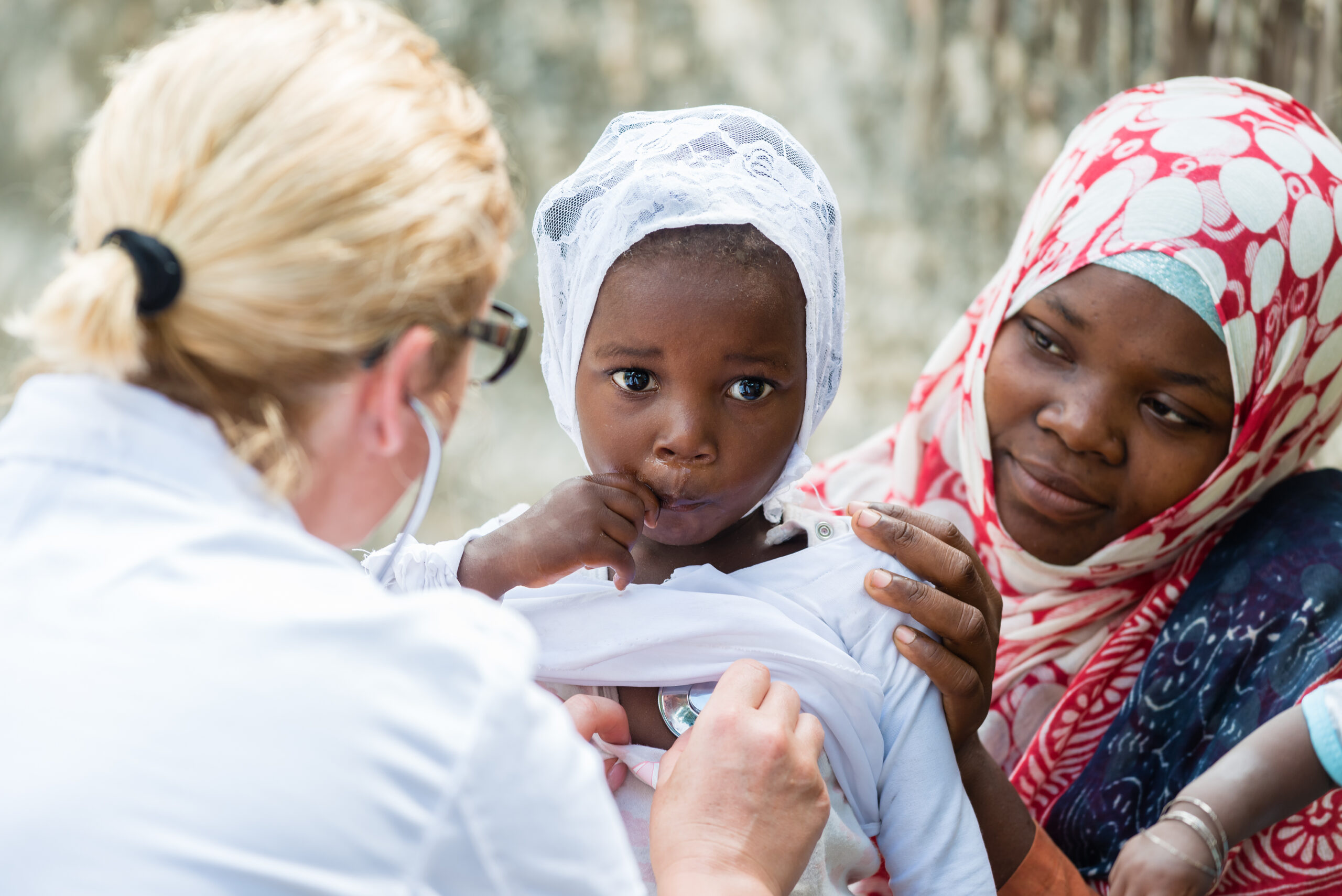Despite decades of efforts to fight it, malaria continues to impact millions of people worldwide. Progress against the disease has slowed, and in some cases trends in the wrong direction. To reinvigorate progress toward zero malaria, we need to take a fresh look at the problem.
One way to do that is to consider malaria as a women’s health issue. Women and girls are particularly vulnerable – especially during pregnancy – due in part to social, economic, and cultural factors putting them in harm’s way and keeping them from care. Adopting a gendered lens to address malaria is crucial to break this cycle.
Equally vital is acknowledging that women are key to effectively fighting malaria through their role as caregivers, community health workers, and global health leaders. The theme of this year’s World Malaria Day is ‘Invest, Innovate, and Implement for zero malaria.” Women are critical to all three aspects. Here’s how…
Investing in women in the fight against malaria will lead to huge economic dividends.
Women’s economic potential is curtailed by malaria. Not only are women particularly susceptible to the disease during pregnancy, women and girls also bear a disproportionate burden of caregiving due to malaria – spending up to four times as many hours on unpaid care work as men.
This responsibility keeps girls out of school, limits their economic opportunities, and shuts them out of leadership positions. The result is billions of dollars in lost income and productivity, reinforcing cycles of poverty.
By investing in efforts to prevent and control malaria, we can help women unlock their economic potential. Empowering women in this way benefits everyone: countries that reduce their malaria burden experience higher GDP growth, driving economic development for women, their families, and their communities more broadly.
There’s also a growing body of evidence that the benefits flow both ways. Households where women have more decision-making power are significantly more likely to use a bed net. Increases in women’s bargaining power are associated with decreases in the likelihood that family members contract malaria. In other words, empowering women can lead to better malaria outcomes for their communities.
Innovation depends on the knowledge of women working on the frontlines to unlock scientific breakthroughs.
Women are consistently, and without much attention or fanfare, innovating on the frontlines of malaria research and innovation in their communities.
Krystal Mwesiga Birungi, a young entomologist, is leading efforts to modify genes of the mosquitoes that transmit malaria to reduce their numbers by disrupting their breeding. After suffering from bouts of malaria as a child, Dr. Ify Aniebo was inspired to become a molecular geneticist studying malaria drug resistance and its implications for malaria control efforts.
The contributions of these and many other women have been key to enhancing our understanding of the disease and efforts to control it. However, institutional barriers often prevent more women like Krystal and Ify from launching or advancing careers in STEM fields.
To respond to this challenge, Dr. Aniebo launched Afroscientric, an organization working to encourage young African women interested in careers in STEM. Other organizations, like the Pan African Mosquito Control Alliance or Association, seek to empower women as leaders on the frontlines of innovation. These efforts are important steps in the right direction, but more work needs to be done to ensure that women’s perspectives and contributions are at the center of malaria science and research.
Implementation of effective programs simply cannot happen without women.
Women are the backbone of malaria implementation programmes – they make up more than 70% of community health workers globally. They are the ones leading door-to-door assessments, distributing bed nets and administering treatments. But too often, women are left out of the leadership positions where policy decisions are made. Clearing the path for women to reach these positions and hearing their perspectives is essential to drive progress.
Women are also more likely to make health-related decisions for their households, such as whether to use a bed net or seek treatment for malaria. That means ensuring women have the information they need to keep their families safe is critical. Equipping community health workers with tools to fight misinformation will be especially important as countries prepare to roll out new malaria vaccines and treatments.
Women’s leadership is the linchpin to delivering on investment, innovation, and implementation to achieve zero malaria. To maximize the impact of women’s work across these three areas, they must be valued as full partners and leaders at the community, institutional, and national levels. This World Malaria Day, we’re focused on how to tackle a persistent and challenging disease. And from our perspective at WomenLift Health, the solutions start and end with women.


